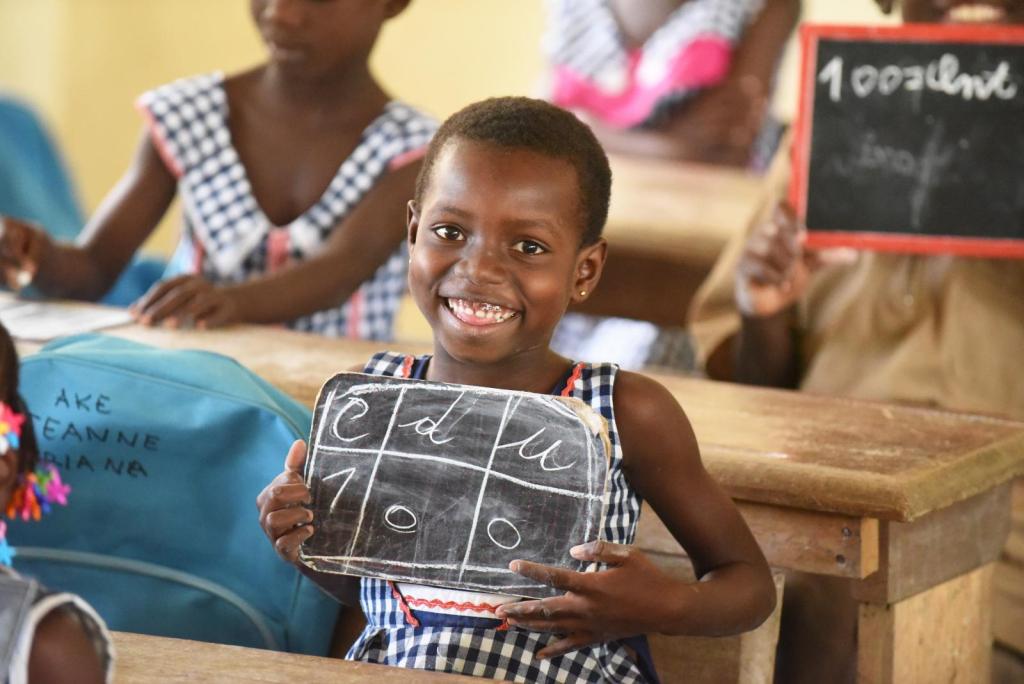GENERAL
Can Development happen without Education?
Published
6 years agoon
By
Frimpong
Building a great nation is a paramount interest of every successive government. No matter how earnestly we want to pursue an agenda for national development, the prowess of education cannot be relegated to the background. It is imperative to note that a nation’s dream, aspiration, sense of pride and the understanding of development are largely dependent on the finest education that a country provides for its citizenry.
Great nations in the world are great not because they have great people rather, they have great education that produces great people. Show me a great nation and I will be ready to show you their source of greatness – that is education.
One might ask what is education and its role in national development. Most often than not our understanding about education and development are shrouded in misconception. We often think education is schooling or schooling is education. Many people have a superficial concept of education; equating it with doing a particular course or obtaining a particular qualification.
The Ghanaian education has been reduced to certification where students are just interested in getting certificates with little contribution to the national quota. This account for the reasons why there are lots of graduates with a set of parading certificates yet have not contributed significantly to national development. Let us note that education is not certification neither it is qualification rather is an application of knowledge to solve problems within a given society.
Well in my plain words’ education is an exposure of a positive learning experience which brings about an inherent and permanent change in a person’s thinking and capacity to do things with the prime aim of solving societal problems. Again, education is holistic in nature where it does not involve acquisition of critical thinking skills but it is coupled with morality and sincerity.
Any form of “education” which is not tailored towards re- awakening the minds of its citizenry to response positive to problem within their society then it something else. In summary education should be designed to be culturally specific and sensitive
Again, the word development is often trivialized to be the provision of physical infrastructure such as magnificent buildings, complex roads and the likes. Undoubtedly, all these infrastructure elements constitute a small aspect of development. Development goes beyond the boundaries of social infrastructure. Development is the efficient and effective use of national resources by educated citizens to meet the demands of the state. By an extension of this, development should be tailored towards meeting the demands of the state. It is a state driven agenda to promote the wellbeing of the people with available resources at the disposal of the country.
In an attempt to synchronize the education and development, we should understand that they are inseparable and they complement each other; hence a problem in one would affect the other. In this case, if the education is poor then development of the country will predictably be poor. Education is a tool for national development because of the following reasons
Education gives us a critical mindset of thinking through a problem, identifying the lapses and the finding sustainable solutions to the problem in our society. Critical thinking is one of the core of tenets education. Paulo Friere, one of finest educators in Brazil asserts that third world countries that are stricken with pestilences, strife, hunger, war, and abject poverty have not risen to the critical consciousness which education ought to provide.
According to Paolo Friere, if a country’s education fails to achieve this “critical consciousness it will face difficulty in progressing and developing. Education provides critical consciousness which is able to make individuals become aware of the existing problem in their country.
We must not lose sight of the fact, the western economies like United Kingdom, Germany, Russia, France, etc drew much inspiration and emulation of the earliest western civilization which made critical thinking an integral element in their educational discourse.
The likes of Aristotle, Plato, Socrates, Archimedes, Erasmus, Galaleo, and so on buttress on the necessity of critical thinking in the education which has been the solid backbone of identifying and addressing problems in the respective countries. In short education provides critical and analytic skills to become aware of the resources that we have and use them judiciously to allure to benefit of the state.
By Maxwell Asare Boateng
(Kofi Dagrapha)
You may like
-


IWD: Celebrating women in Covid-19 ‘fight’ and development
-


Legal education must focus on all areas of the legal profession – MountCrest Rector
-


Forget other parties because Ghana will develop only under NPP – Mustapha Hamid
-


Minister for Planning Gyan-Baffour transforms Wenchi with educational infrastructure
-


GHC10b “Big Push” will offer major boost to Education – Mahama
-


Secure girls’ education as COVID threatens their future – Stakeholders to African leaders
-


Reading enhances quality education – Rebecca Akufo-Addo
-


‘US doesn’t cane children but’ve been to the moon; we’ve caned ours for 60 years yet achieved nothing’
-


Can Love and Lust Coexist in a Relationship?
























